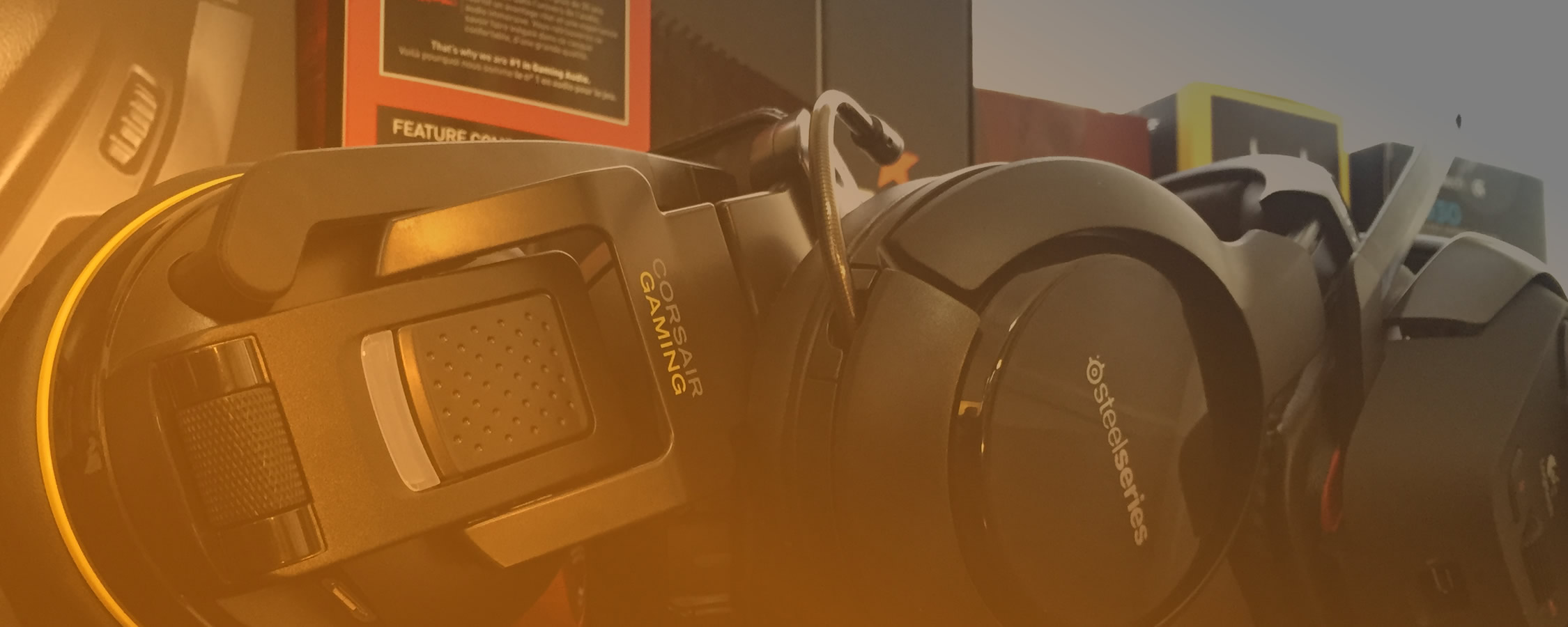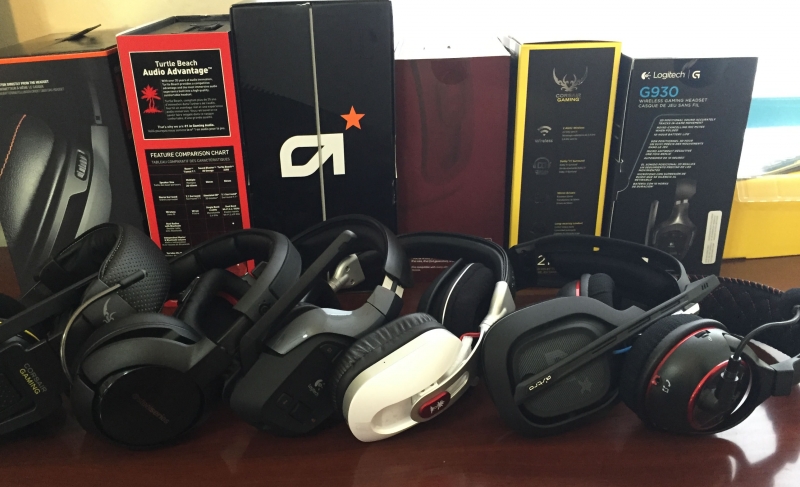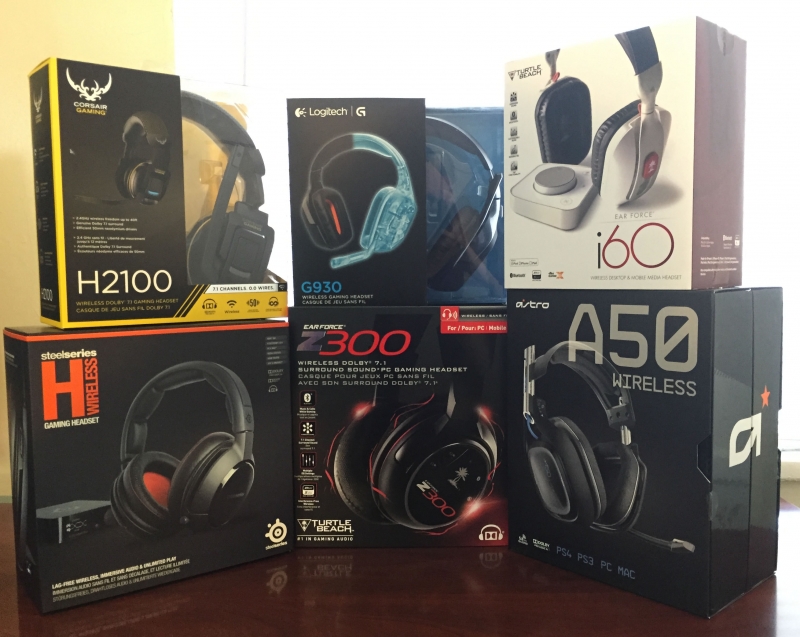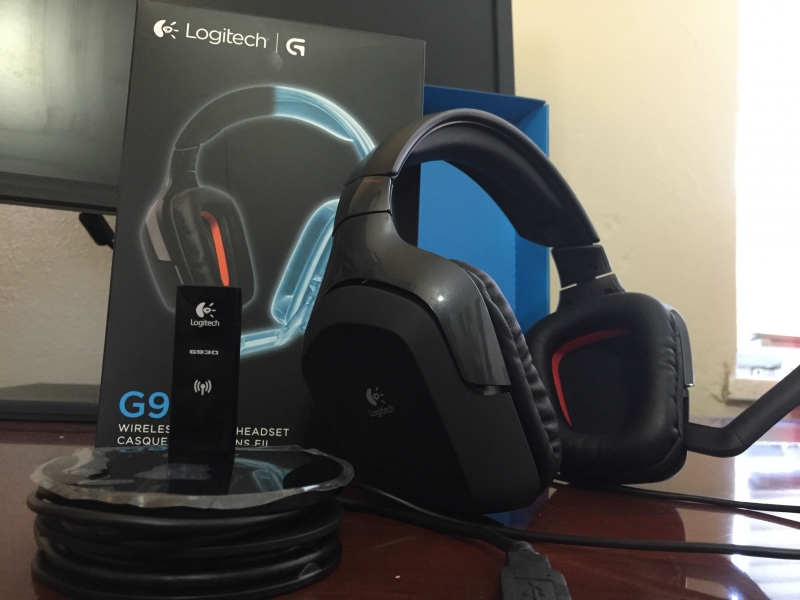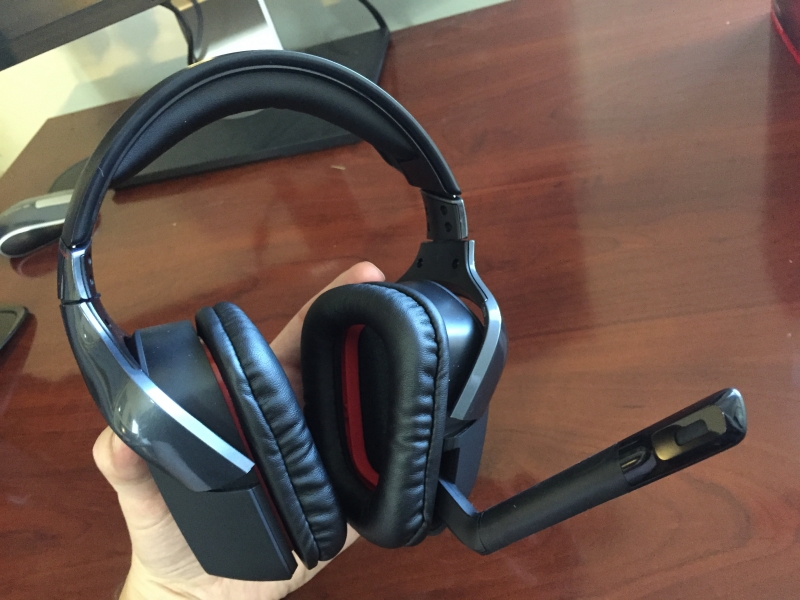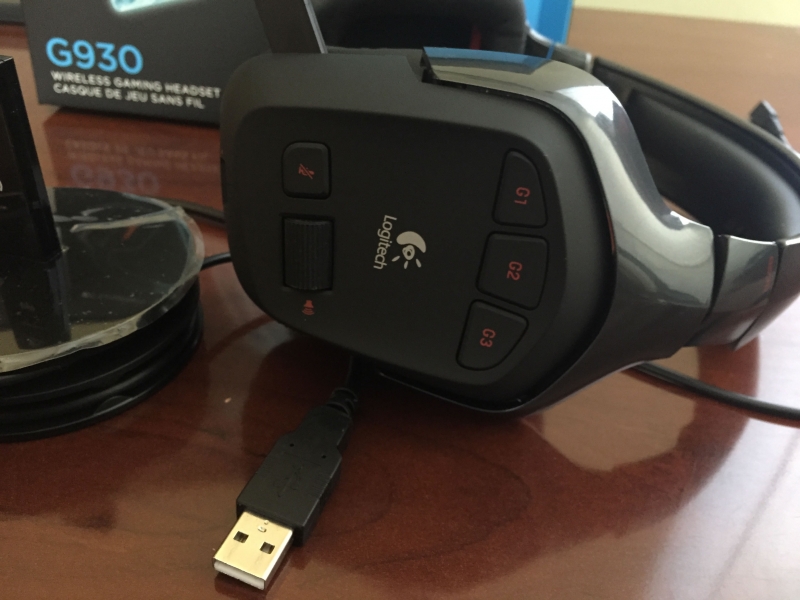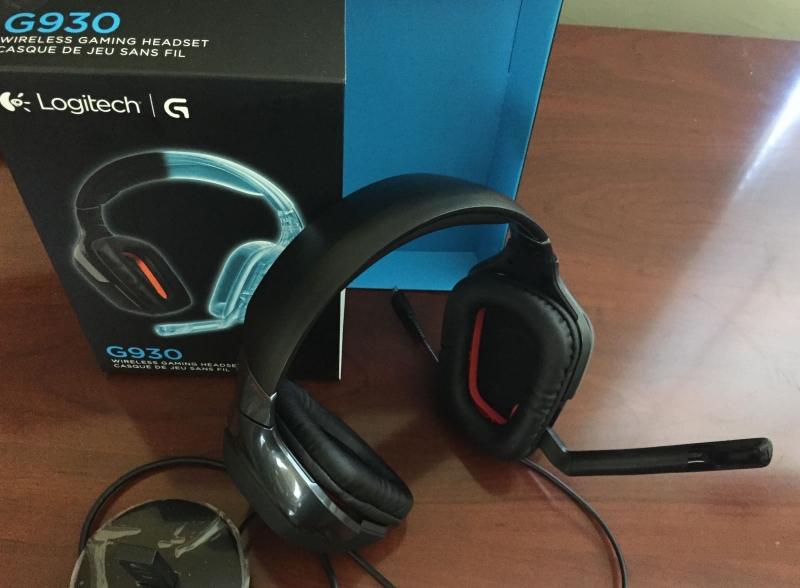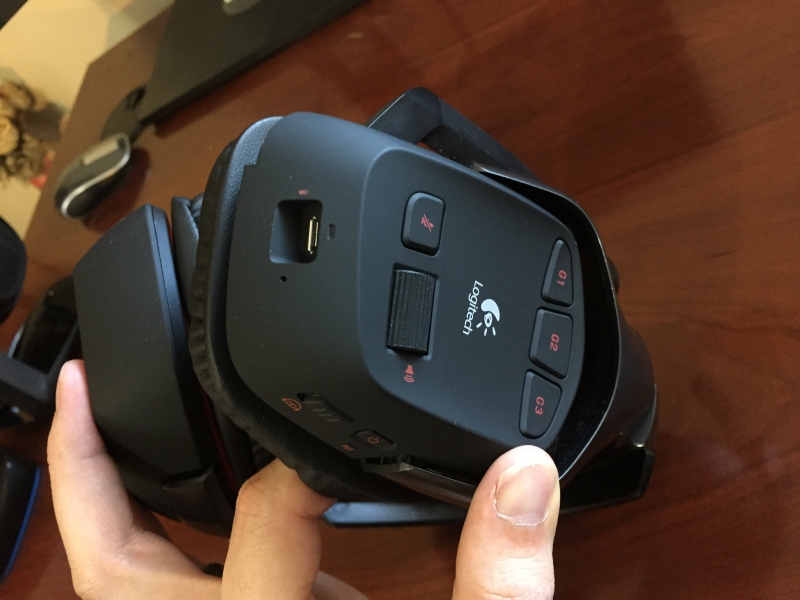The magnitude of gaming headsets out there is bewildering. If you're in the market for a wireless headset though, the dizzying array of options dwindles to fewer than a dozen choices. Some of those choices are good. Some of those choices are, well, less good. With my existing wireless headset on its last legs, I enthusiastically delved into spec sheets, customer ratings and reviews to find the perfect headset. My first two choices left me unsatisfied, so I knew I had more searching ahead of me. As a result, I decided to chronicle my hunt for the perfect wireless gaming headset. I hope you find the resulting comparison useful.
My very first wireless gaming headset carbon dates all the way back to 2008. It was made by Creative. Believe it or not, it still works and a friend uses it to this day despite its waning battery life. In 2011, I purchased my last wireless gaming headset, a Logitech G930 (a significant upgrade, too). Finally approaching its demise after nearly five years of service, I was excited to discover the latest and greatest in headsets. Visions of improved features, better wireless and higher end sound danced in my head.
When it comes to needs and wants, not everyone shares the same priorities. I did have some strong ideas of what I was looking for though. Function is king: clear communication, good comfort and dependable wireless. I am also willing to spend money for perfection. Voice quality is important, too, particularly because my friends and I routinely record our gaming hijinks on YouTube.
With that in mind I procured the following headsets for this hands-on review: Logitech G930 ($95), Corsair H2100 ($85), Astro A50 Gen2 ($300), SteelSeries H ($280), Turtle Beach i60 ($205), Turtle Beach Z300 ($170).
Deal breakers (won't settle for these at any price)
- Unreliable wireless
- Poor microphone quality
- Worse than "okay" sound
- No way to mute mic from headset
- No volume control on headset
- Throbbing ears after extended gameplay
- Less than four hours of battery life
Wants
- Flawless wireless reliability (dual-band or 5.8GHz to reduce interference – sorry Bluetooth)
- Great sound quality
- Circumaural (i.e. around the ear, maximal comfort)
- Chat mix (i.e. voice and game audio can be adjusted independently)
- Extra bells and whistles, like customizable sound settings, microphone noise suppression and programmable buttons
- Smartphone/Bluetooth support
- Wireless range: enough range to use in an adjacent next room
- Durability
Not that important
- Cost
- Game console support
- Appearance
Logitech Wireless Gaming Headset G930
score
Logitech's G930 is a great value, packed with features, comfort and one of the clearest and loudest microphones; however, disappointing sound clarity and potential durability issues prevent it from being an obvious recommendation.
As I mentioned earlier, I've owned the G930 since 2011. As such, I have unique insight into its longer-term prospects. Performing due diligence though, I picked up a brand new one to see if anything has changed. With that said, the G930 seems identical. The USB receiver has some fancier print on it, but that's really it. It sounds the same, looks the same and feels the same. It even comes with the same clever "yo-yo" cord puck that also doubles as USB dock.
Comfort
The pleather pads are sweaty, but the G930 is one of the more comfortable headsets in this round up. The ear cups are soft, deep and spacious enough to give your ears plenty of room. The headband itself is adjustable to infinity and beyond (seriously). I'm 6'3" (~190cm) tall and I can adjust this headset so that the earpads rest against my neck. Fit will not be a problem here.
Sound
This is not a headset for audiophiles, but one of the louder, bassier choices on our list. Although I believe many gamers will find the G930 perfectly serviceable, it had the worst clarity of any headset in this round-up. My inner audio snob would describe the G930's audible characteristics as, "muddy mids and highs awash in a sea of flabby bass," but that is likely a much harsher critique than most of our readers would give. It was plenty loud though with lots of low-end, two virtues important to gamers. The supplied software EQ can help clean it up a bit but you won't get the high-end detail found on more expensive sets like the Z300, i60, A50 or H Wireless.
Wireless
Although my old G930 did have a history of occasionally dropping once every couple of gaming sessions, I experienced no drops with the new headset over multiple sessions. The G930 passed the interference test, a test where I generate lots of wireless traffic from multiple, nearby sources. Measuring the time it took to speak into the mic and have that sound played back into my ears, there was a round-trip delay of roughly 250ms.
This essentially ties the i60 for being the slowest headset. Keep in mind that this measurement is round-trip (i.e. back and forth). Signal encoding/decoding, microphone processing, noise suppression and all that add to this delay. The bulk of wait seemed to center around the microphone and this was the case with all headsets. Subjectively, the lag time between a shot fired and hearing that shot seemed instantaneous. Pro gamers may be wary of any latency at all, but most prospective buyers need not worry about this number.
Microphone
Logitech got this right and it may be the best mic in this roundup. Excellent volume, good clarity and dual-mic noise cancellation. This headset fared better than most at reducing microphone background noise and avoiding wind noise. There are two ways to mute the mic on the headset: raise the boom or press the mute button. Few headsets had the "communications" side of things buttoned up so well. The software includes a slider for side tone (i.e. mic monitor) so that you can hear yourself clearly and voice morphing.
Features and Value
This headset oozes features albeit a lack of connectivity options (USB only). Considering you can frequently find it for less than $90 new, it is hands-down the best value in this comparison. Mute, volume and programmable buttons all have a home on the headset itself. Optionally, you may also raise or lower the boom to mute/unmute the mic. A LED indicator lets you know if you're muted or not. Logitech's gaming software offers customizable profiles, voice morphing, EQ controls, battery indicator, mic monitor adjustment and more.
Battery Life
Logitech advertises "up to 10 hours". My synthetic test gave it about 10 and a half hours. Speaking from lots of use, that measurement seems right on the money.
Overall Quality and Impressions
The G930 feels a cut above your typical sub-$100 headset. Ostensibly, it also happens to be the least sturdy headset in this comparison. The buttons and cans are solid, but their adjoinment to the band feels floppy and loose. This is partly due to design. However, some of the plastic parts creak as you put it on, fueling doubts of its longevity. The buttons and volume roller feel good.
This is a bit unfair since I've owned this headset for years, but my G930 (circa 2011) had its share of issues. Having this insight does make me concerned about durability:
After 1 year, USB transmitter dropped very frequently (every few minutes). Logitech sent replacement under warranty, which basically fixed the issue.
Since 2011 and the new transmitter, signal occasionally drops for a few seconds (once every several hours or so)
After 2 years, the mic boom became very loose and lifting/lowering it no longer muted the mic reliably. I took it apart and tightened a screw which fixed the issue
After 3 years, the pleather ear cushions "disintegrated". OEM replacements were less than $10 though.
After 4 years, the mic began intermittently humming/buzzing. It eventually became impossible to ignore, which is when I finally retired it
Disheartening? Maybe. But Logitech likely hopes its three-year warranty will help ease apprehensions. Be that as it may, I'm glad to have known the G930. In fact, I'm even entirely willing to buy another pair. Giving my old G930 a landfill funeral wasn't easy to do, but after four years, it was probably time. I'm hopeful Logitech has addressed the biggest issues over time, but to that we can only speculate.
